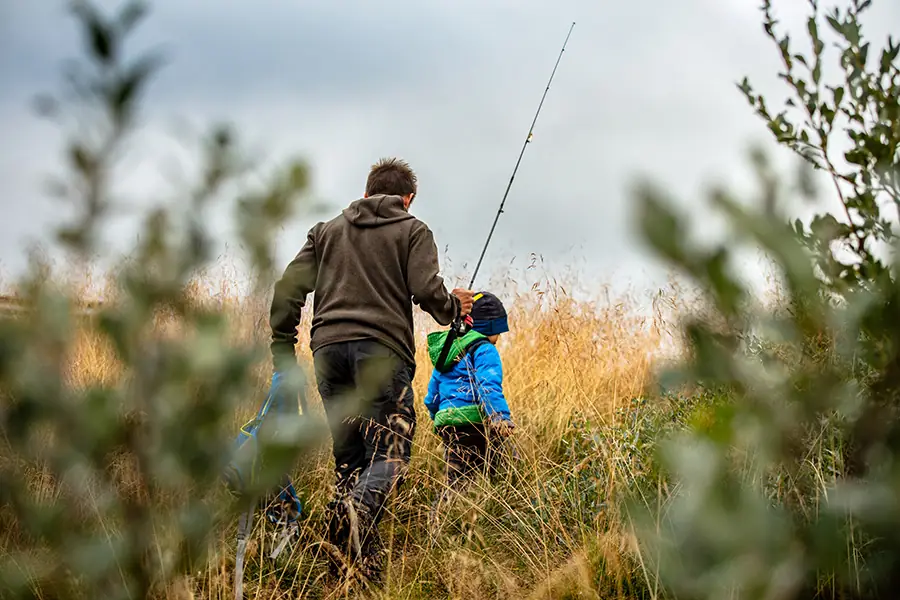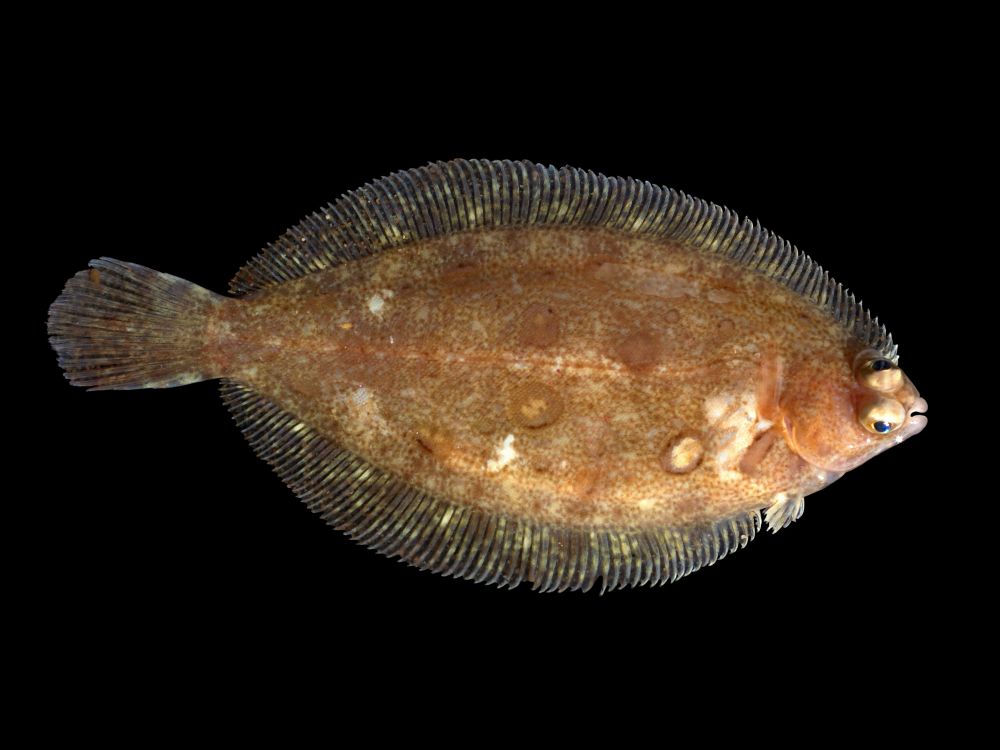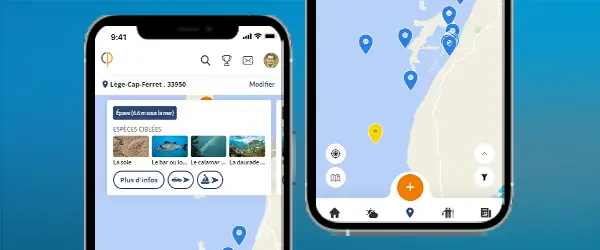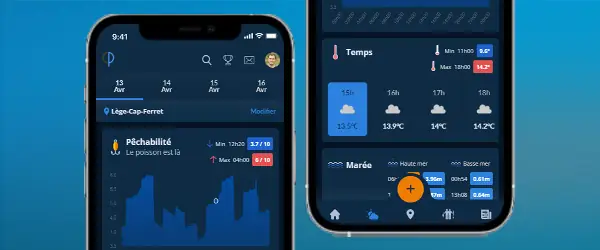
Read the article with FishingTheSpot: the sole fish
Keep an eye on this subject!
Thousands of species spotlights and techniques but also all the local information about your city!



Meet other anglers near you and share your fishing fishing trips, afoot or on a boat, at sea or in freshwater
See the fishing tripsThe Sole Fish

All year
24 cm
Did you fish
this species this month?
The sole fish belongs to the Soleidae family. The maximum size can reach 70 cm with a current size of 25 to 35 cm. Its longevity is 27 years. It breeds from January to March depending on the region. It can lay up to 1,300,000 eggs. It can be fished all year round.
First of all, we notice in this flatfish its characteristic oval shape, which is not found in the other flatfish most frequently encountered by divers. The adult sole, a right-handed (or dexter) flatfish, rests on its left flank and has its eyes on the right side. The color of this fish is very variable: bluish grey to yellowish brown! The body is often marked with marbling and dark spots. The snout of the soles is rounded and shows a small arched mouth, located before the tip of the head. Her eyes are small and wide apart. The caudal has a rounded edge at the end of which a dark fringe can often be seen. On the seabed is the black spot (sometimes golden or brown) at the back and up of the pectoral fin. The dorsal and anal fins are generally white bordered and joined to the caudal by a thin membrane.
The Sole fish lifestyle
It feeds on various small crustaceans, mollusks, worms.... which it identifies by olfaction (identifiable olfactory tubes) and in a tactile way. Sensitive papillae can be seen under his snout.
The sexual maturity of this fish is reached around 4 years of age. Breeding takes place mainly from March to May (this varies according to the region) and plankton observations show eggs reaching a diameter of 1.5 mm (flotation ensured by a lipid droplet also acting as a food reserve). The female can lay hundreds of thousands of them! Depending on its size, a female carries 130,000 to 1,300,000 eggs. Hatching occurs after 5 to 11 days of incubation. The larvae are initially similar to that of a conventional fish, then after metamorphosis, the young (size about 15 mm), asymmetric, search for nearshore waters.
The Sole fish habita
Common sole lives from the shore to a depth of 200 m, but most often before 70 m deep, mainly in sandy or muddy environments. It can be found in ports or estuaries, on the edge of fresh water (it supports a salinity of 10‰).
It is found in the North Sea, English Channel, Atlantic Ocean, Mediterranean Sea.
The Sole fish angling
It is caught by bottom trawl (weighted net dragged by a boat) or trammel (vertical standing net with 3 parallel layers) and by pole. It can be fished all year round.


